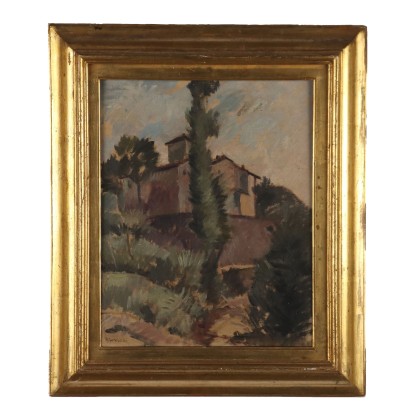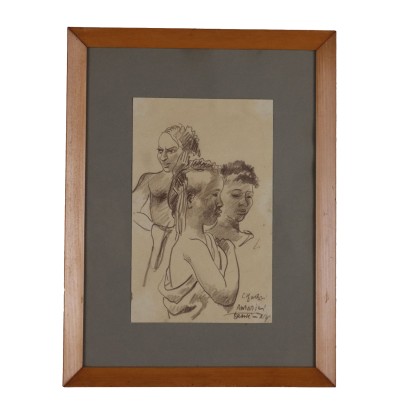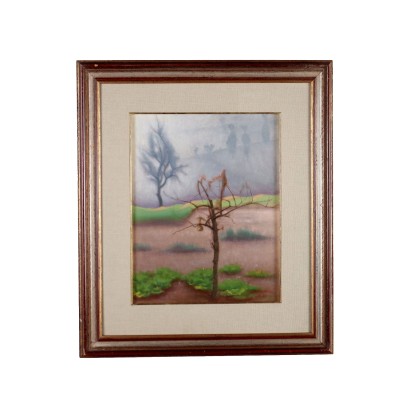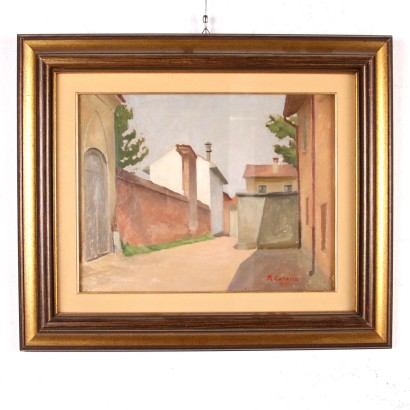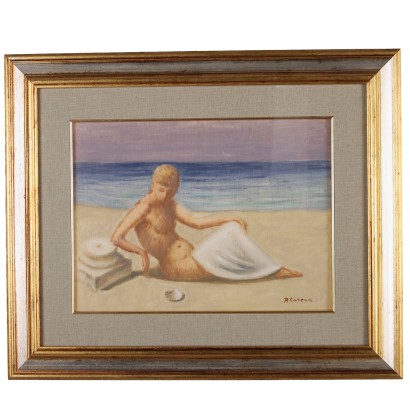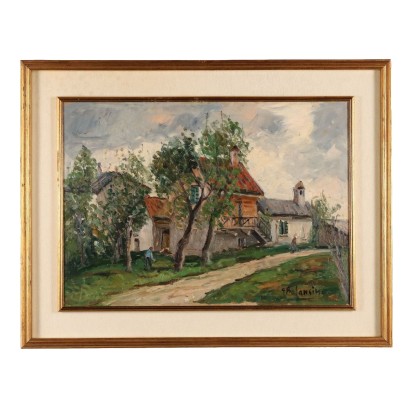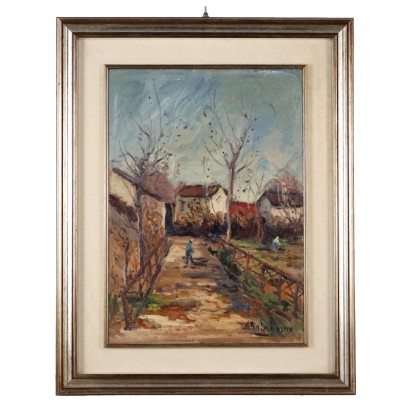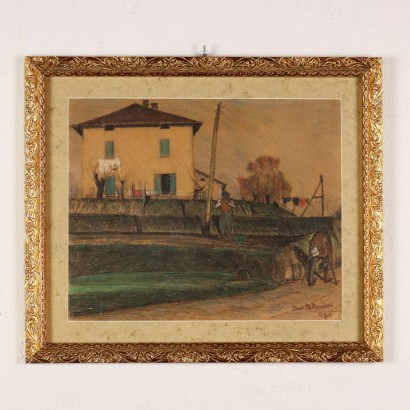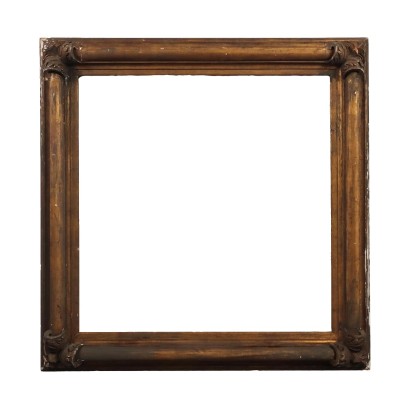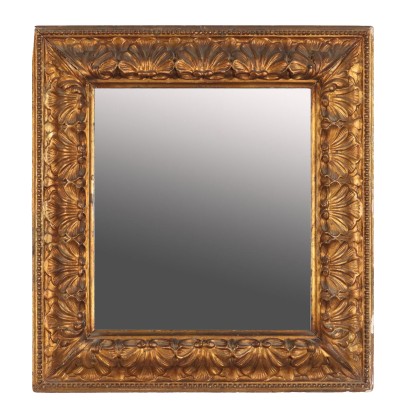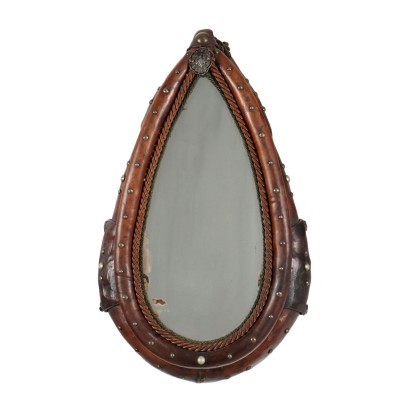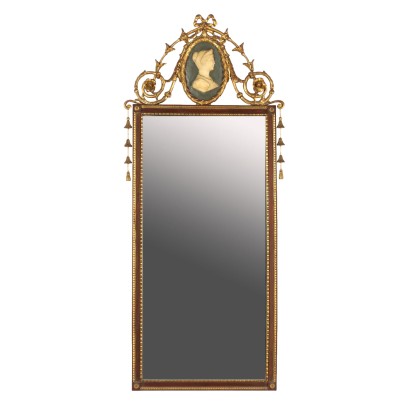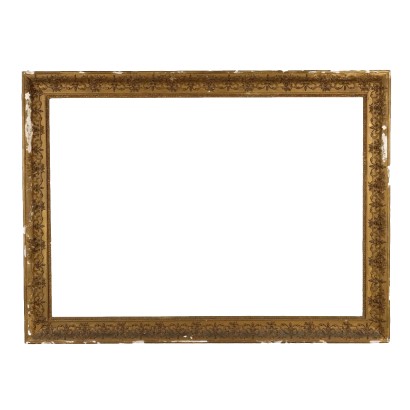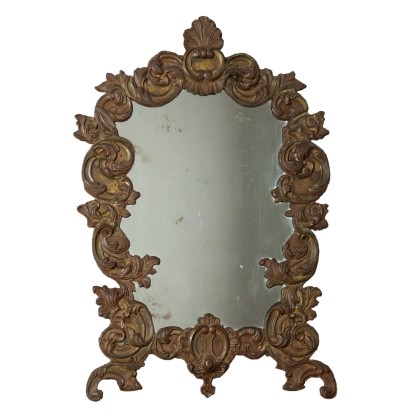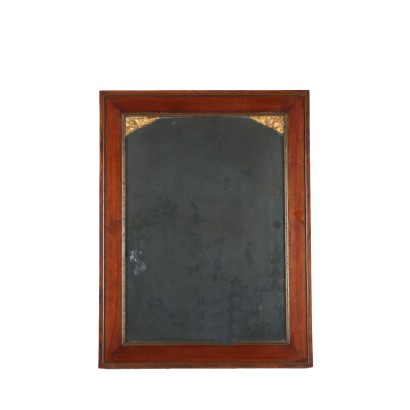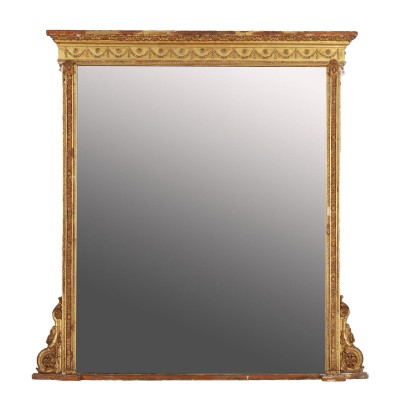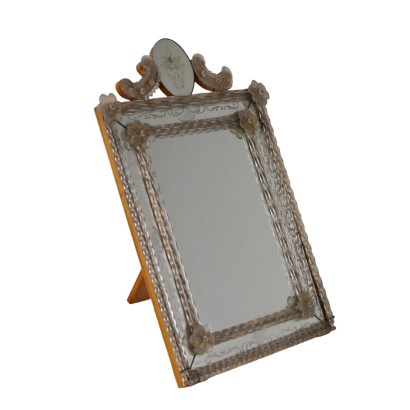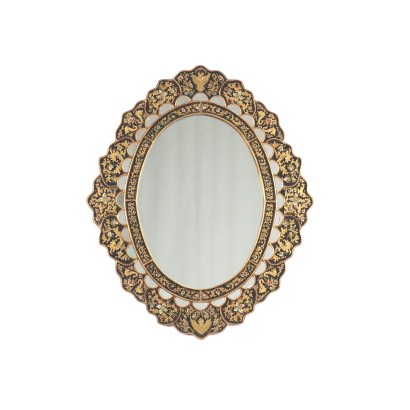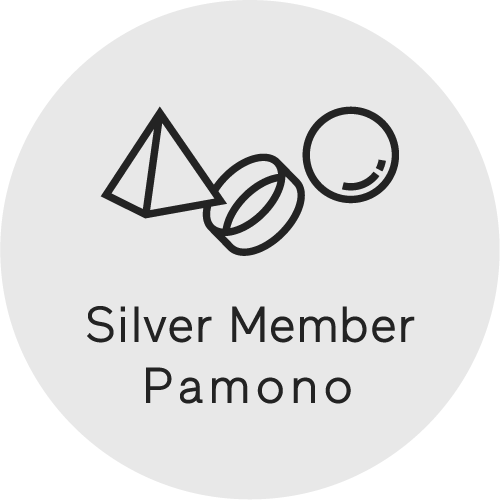Modern Painting by G. Ferroni Oil on Canvas Italy XX Century - Sad Village
Features
Sad Village
Artist: Guido Ferroni (1888-1979)
Artwork title: Paese triste
Age: 20th Century / 1901 - 2000
Subject: Views/City Glimpses
Artistic technique: Painting
Technical specification: Oil on Canvas
Description : Paese triste
Oil painting on canvas. Signed lower left. On the back on the frame the title in pencil. The Sienese artist Guido Ferroni, after an impressionist debut, arrived at a painting with intimate tones, characterized by a reduction of the chromatic ranges and an atmosphere of calm village everyday life, linked to the Tuscan tradition. The painting is presented in a contemporary gilded frame.
Product Condition:
Product in good condition, has small signs of wear. We try to present the real state as fully as possible with photos. If some details are not clear from the photos, what is stated in the description applies.
Frame Size (cm):
Height: 69
Width: 59
Depth: 6
Artwork dimensions (cm):
Height: 50
Width: 40
Additional Information
Artist: Guido Ferroni (1888-1979)
Guido Ferroni was born in Siena in 1888. Self-taught, he did not follow regular artistic studies but, having settled in Florence, he attended the free nude school of the Academy. He exhibited for the first time in 1910 at the exhibition of the Society promoting fine arts of Florence. After an impressionist debut, Ferroni oriented himself towards new formal solutions, characterized by a reduction in chromatic ranges and an atmosphere of calm village everyday life. In Florence, in 1927, Ferroni joined the Novecento Toscano group which, linked to the literary environment of Solaria, had officially been established that same year in Florence. The following year he participated in the group's first official exhibition which was hosted in the Lombardy capital by the Milan gallery. He was a teacher at the Academy of Fine Arts in Ravenna, where he taught from 1933 to 1941, and at the Art Institute of Lucca, where he taught from 1941 to 1958. At the end of the Second World War he settled again in the Tuscan capital, where he continued his pictorial activity consistently. He died in Florence on 21 April 1979.Age: 20th Century / 1901 - 2000
20th Century / 1901 - 2000Subject: Views/City Glimpses
Artistic technique: Painting
La pittura è l'arte che consiste nell'applicare dei pigmenti a un supporto come la carta, la tela, la seta, la ceramica, il legno, il vetro o un muro. Essendo i pigmenti essenzialmente solidi, è necessario utilizzare un legante, che li porti a uno stadio liquido, più fluido o più denso, e un collante, che permetta l'adesione duratura al supporto. Chi dipinge è detto pittore o pittrice. Il risultato è un'immagine che, a seconda delle intenzioni dell'autore, esprime la sua percezione del mondo o una libera associazione di forme o un qualsiasi altro significato, a seconda della sua creatività, del suo gusto estetico e di quello della società di cui fa parte.Technical specification: Oil on Canvas
The oil painting is a painting technique using powder pigments mixed with bases in inert and oils.Other customers have searched:
Arte Novecento, dipinti del 900, olio su tavola, pittura olio su tela, arte 800, pittura antica, arte contemporanea, quadro del '900, quadro grande, quadro olio su tela..
Se sei un appassionato d'arte, non perderti i nostri approfondimenti sul Blog Arte Di Mano in Mano e su FineArt by Di Mano in Mano - Arte:
Leggi di più
Ecco alcuni tra i principali articoli:
Vedute
Falsi nell'arte antica
Un messaggio di fiducia per ripartire
La potenza espressiva dell'arte figurativa etiope
Breve Storia del Collezionismo
Giorgio Upiglio, maestro dei libri d'artista
Matthias Withoos detto "Calzetta bianca"
San Rocco pensaci tu - Classic Monday
Ecco alcuni esempi dell'arte del Novecento più bella che puoi trovare da noi:
I Raccoglitori di patate - Lavoro estivo - Augusto Colombo, 1935
I Taglialegna - Lavoro invernale - Augusto Colombo, 1933
Il lavoro femminile, Contardo Barbieri, 1954 ca.
Sapevi che l'arte può essere anche un ottimo investimento (e non solo per grandi portafogli)?
L'Arte tra Collezionismo e Investimento
FineArt: Arte come investimento
Dai un'occhiata alle nostre rubriche di divulgazione sull'arte:
Epoche
Lavorazioni e tecniche
Mostre ed Eventi
Protagonisti
Leggi di più
Ecco alcuni tra i principali articoli:Vedute
Falsi nell'arte antica
Un messaggio di fiducia per ripartire
La potenza espressiva dell'arte figurativa etiope
Breve Storia del Collezionismo
Giorgio Upiglio, maestro dei libri d'artista
Matthias Withoos detto "Calzetta bianca"
San Rocco pensaci tu - Classic Monday
Ecco alcuni esempi dell'arte del Novecento più bella che puoi trovare da noi:
I Raccoglitori di patate - Lavoro estivo - Augusto Colombo, 1935
I Taglialegna - Lavoro invernale - Augusto Colombo, 1933
Il lavoro femminile, Contardo Barbieri, 1954 ca.
Sapevi che l'arte può essere anche un ottimo investimento (e non solo per grandi portafogli)?
L'Arte tra Collezionismo e Investimento
FineArt: Arte come investimento
Dai un'occhiata alle nostre rubriche di divulgazione sull'arte:
Epoche
Lavorazioni e tecniche
Mostre ed Eventi
Protagonisti



